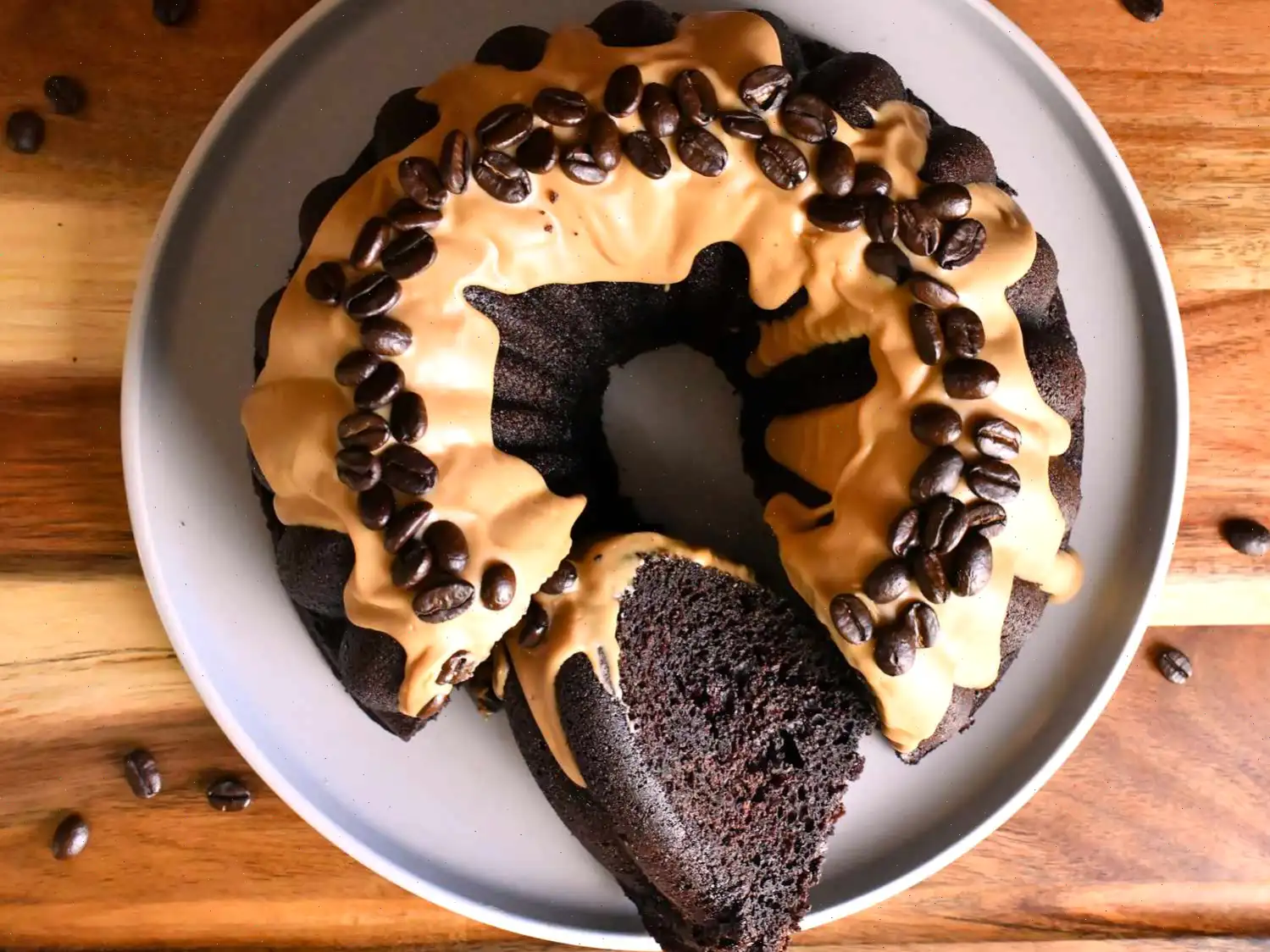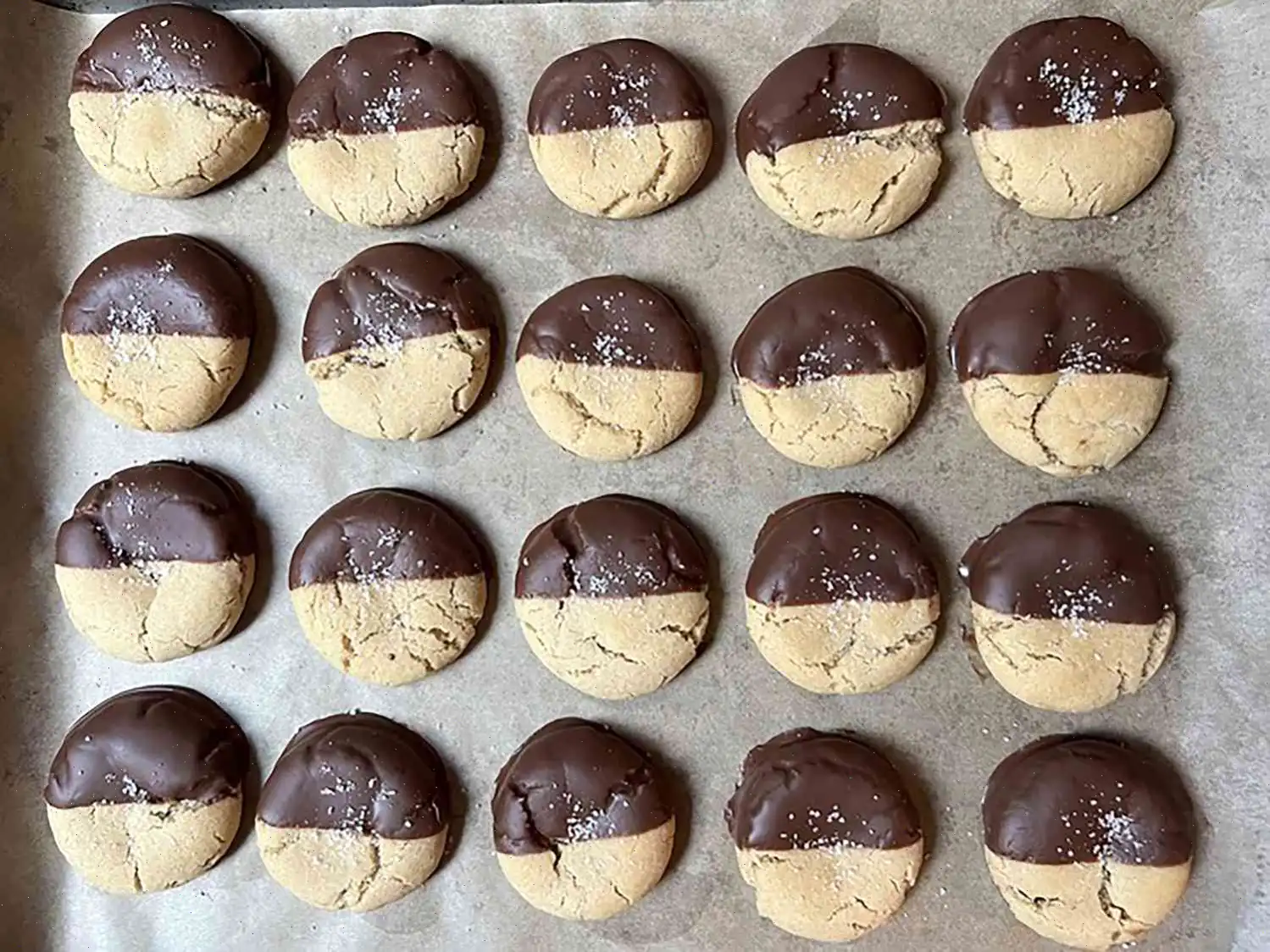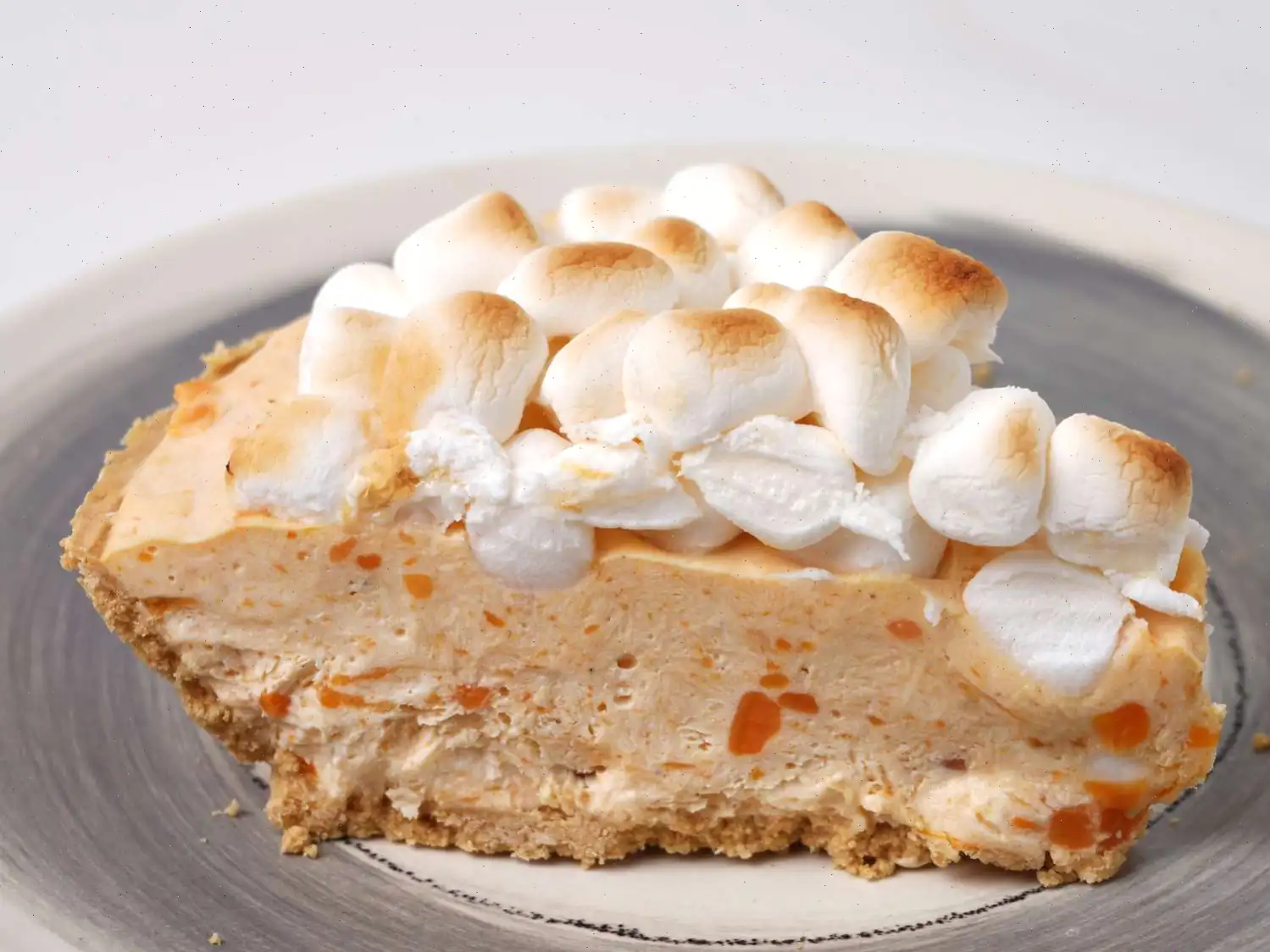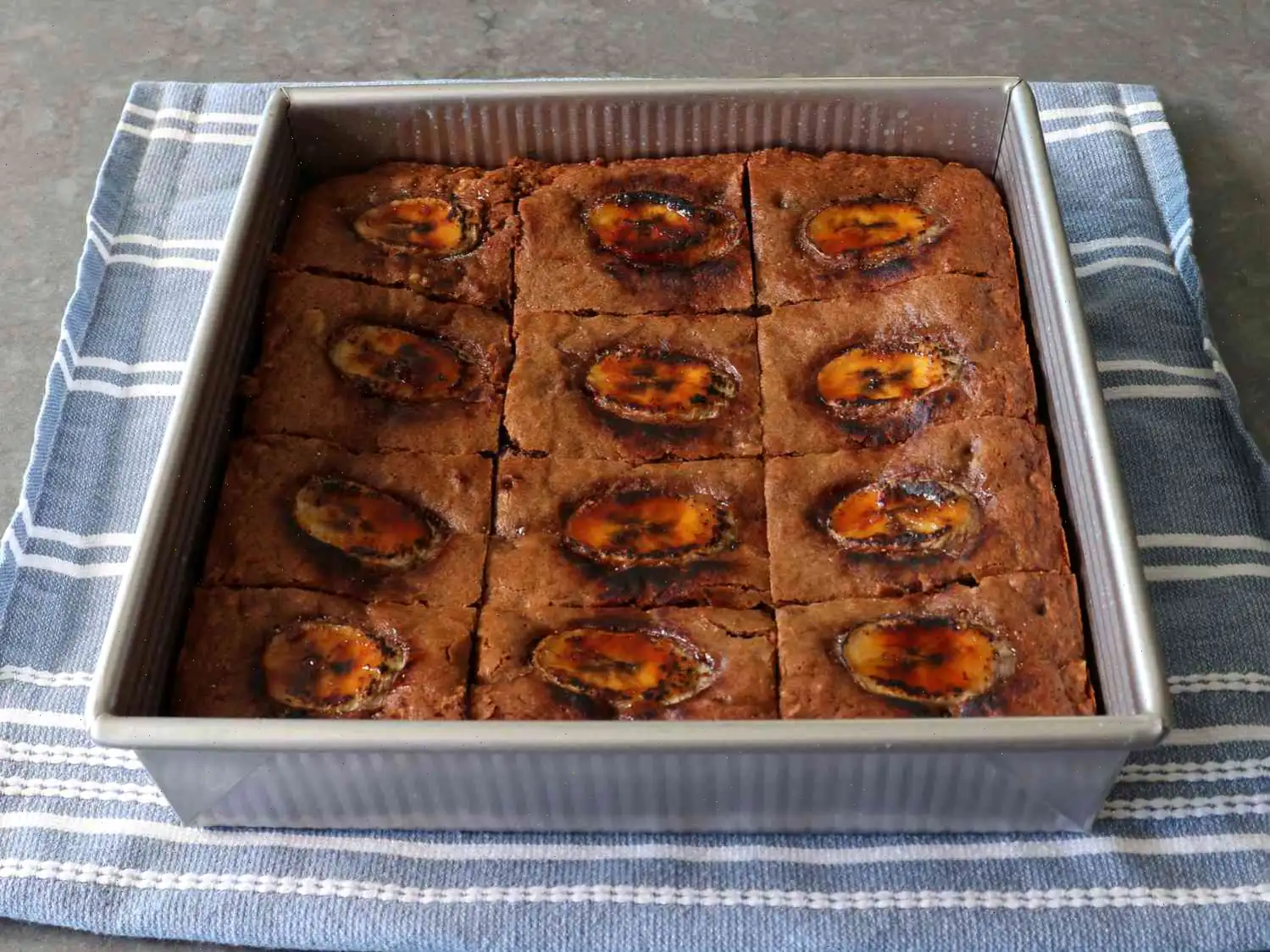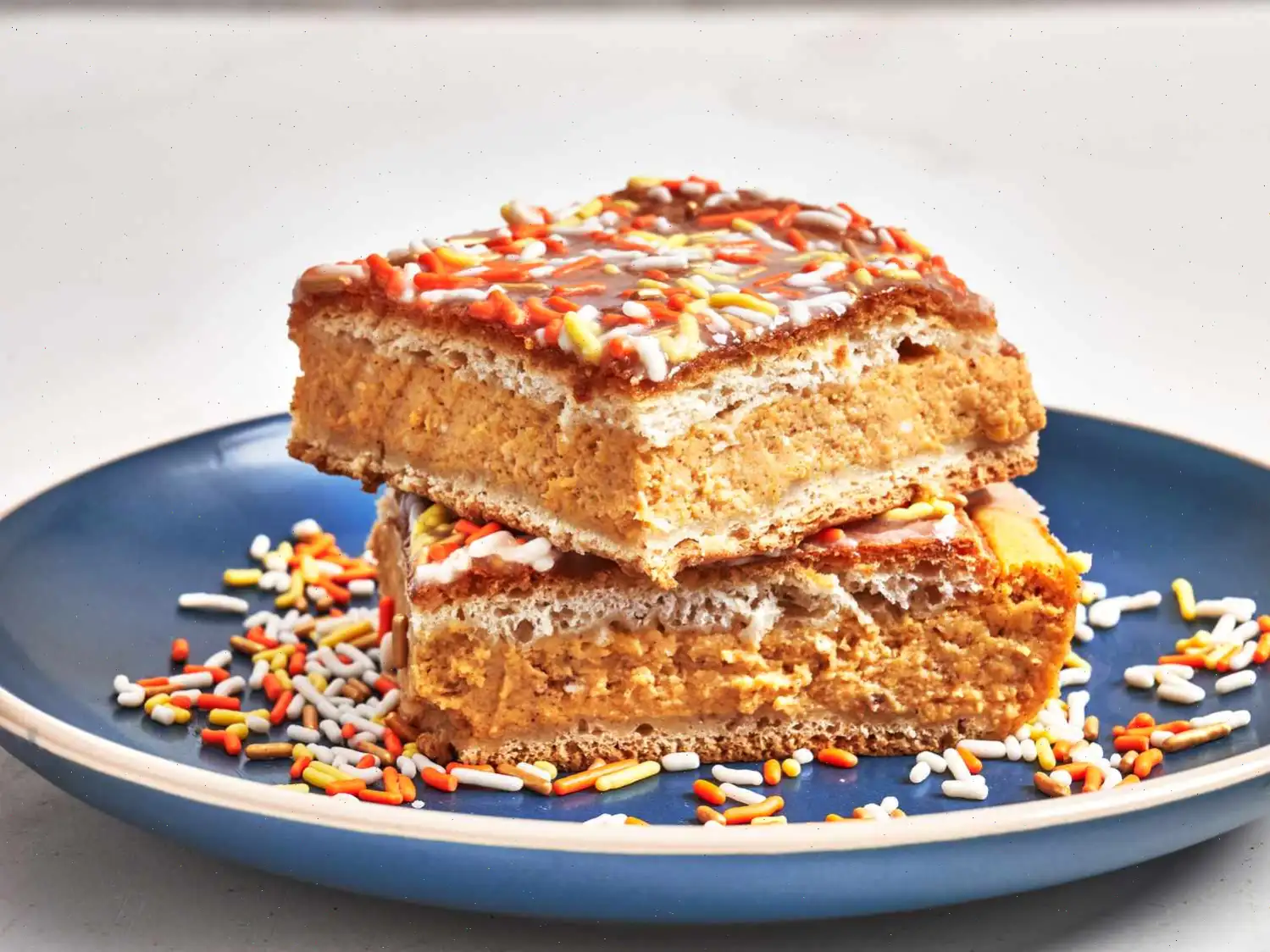
Receta de Pastel Bundt de Espresso
Este pastel Bundt de espresso es un postre delicioso y decadente, ideal para los amantes del café. Hecho con café espresso fuerte, este pastel es húmedo, sabroso y seguro que impresionará a tus invitados. Con un glaseado sencillo por encima, es una verdadera estrella para cualquier ocasión. ¡Disfruta una rebanada con una taza de café para el placer perfecto!
Ingredientes
Para el pastel:
- 3/4 taza de agua recin hervida
- 3/4 taza de cacao en polvo sin azcar
- 2 1/2 cucharadas de caf instantneo
- 1 3/4 tazas de harina para repostera
- 1 cucharadita de sal
- 3/4 cucharadita de bicarbonato de sodio
- 3/4 cucharadita de polvo de hornear
- 1/2 taza de mantequilla sin sal, suavizada
- 3 cucharadas de aceite vegetal
- 1 3/4 tazas de azcar morena oscura, compacta
- 3 huevos grandes, a temperatura ambiente
- 1 cucharada de extracto de vainilla
- 3/4 taza de crema agria con toda la grasa, a temperatura ambiente
Para el glaseado:
- 1 1/2 cucharaditas de caf instantneo
- 2 cucharadas de leche
- 60 g de queso crema con toda la grasa, suavizado
- 1 taza de azcar glas, ajustar al gusto
- Una pizca de sal
- 1/2 cucharadita de extracto de vainilla
Instrucciones
Preparacin del pastel
- Precalienta el horno a 175C (350F) y engrasa un molde tipo Bundt de 10 tazas. Espolvorea un poco de harina para que no se pegue.
- En un recipiente resistente al calor, mezcla el agua caliente con el cacao y el caf hasta formar una mezcla homognea. Deja que se enfre ligeramente.
- Cierne la harina junto con la sal, el bicarbonato y el polvo de hornear en un bol aparte.
- En un bol grande, bate la mantequilla, el aceite y el azcar morena hasta lograr una textura esponjosa, unos 3 minutos con batidora elctrica.
- Incorpora los huevos uno a uno, batiendo bien despus de cada adicin, y sigue mezclando 3 minutos ms a velocidad media-alta.
- Aade la vainilla y mezcla suavemente hasta que se integre.
- Remueve nuevamente la mezcla de cacao y caf y agrgala a la preparacin de mantequilla y azcar, batiendo a velocidad baja hasta unir completamente.
- Agrega la mitad de los ingredientes secos cernidos y mezcla apenas hasta que desaparezcan las partculas secas.
- Incorpora la crema agria, mezclando suavemente hasta que quede homognea.
- Agrega el resto de la harina y combina con movimientos envolventes, cuidando de no sobrebatir.
- Vierte la masa en el molde preparado y golpea ligeramente sobre la superficie de trabajo para eliminar burbujas grandes de aire.
- Hornea entre 45 y 50 minutos, o hasta que al presionar suavemente la superficie, sta vuelva a su forma original.
- Deja enfriar el pastel 30 minutos en el molde antes de desmoldar sobre una fuente. Permite que se enfre completamente antes de aplicar el glaseado.
Preparacin del glaseado
- Disuelve el caf en la leche hasta que no queden grumos.
- Mezcla el queso crema, el azcar glas, la pizca de sal y la vainilla con batidora elctrica a baja velocidad hasta integrar. Luego sube a alta velocidad hasta obtener un glaseado suave y sin grumos.
- Si la crema est demasiado espesa, aade un poco de leche de a poco; si queda muy lquida, incorpora ms azcar glas hasta alcanzar la consistencia deseada.
- Decora el pastel fro vertiendo el glaseado por encima, permitiendo que caiga de manera uniforme por los bordes.
Informacin Nutricional (por porcin)
- Caloras: 396
- Grasas totales: 17 g
- Grasas saturadas: 8 g
- Colesterol: 80 mg
- Sodio: 345 mg
- Carbohidratos: 55 g
- Fibra diettica: 1 g
- Azcares: 36 g
- Protenas: 5 g
- Calcio: 74 mg
- Hierro: 4 mg
- Potasio: 109 mg
Orgenes e Historia
El Pastel Bundt de Espresso, al igual que muchos postres clsicos, ha evolucionado con el tiempo, pero se inspira en los tradicionales pasteles Bundt estadounidenses, los cuales surgieron a mediados del siglo XX. Los pasteles Bundt se hicieron famosos en Estados Unidos despus de que un inmigrante alemn, H. David Dalquist, introdujera el molde para pastel Bundt en la dcada de 1950. Su forma nica en anillo permita una coccin ms uniforme, lo que lo haca perfecto para pasteles densos y ricos. La adicin de espresso en el Pastel Bundt de Espresso lo eleva, aportando un profundo sabor a caf que combina perfectamente con el chocolate.
Variaciones Regionales y Caractersticas
El Pastel Bundt de Espresso es un postre popular en las cocinas estadounidenses, especialmente en aquellas zonas donde la cultura del caf es muy fuerte. Aunque los pasteles Bundt son comunes en todo Estados Unidos, la inclusin de caf espresso en polvo distingue a esta variacin, hacindolo ms popular en lugares donde el caf es una parte integral de la vida diaria, como Seattle, Portland y Nueva York. El perfil de sabor combina la amargura del espresso con la riqueza del chocolate, lo que lo convierte en el favorito de los amantes del caf.
Diferencias con Otros Postres Similares
Lo que distingue al Pastel Bundt de Espresso de otros pasteles de chocolate es su infusin de espresso, que realza el sabor del chocolate sin opacarlo. Este pastel tambin se caracteriza por su textura densa y hmeda, que es tpica de los pasteles Bundt en general. A diferencia de los pasteles ms ligeros, como el chiffon o los pasteles esponjosos, el Pastel Bundt de Espresso ofrece una mordida ms sustancial y satisfactoria. Adems, la capa cremosa de glaseado de espresso que se coloca encima agrega el toque final, no solo embelleciendo el pastel, sino intensificando su sabor a caf.
Lugares Comunes para Servirlo
El Pastel Bundt de Espresso es un postre verstil que se sirve a menudo en reuniones, desde cenas familiares informales hasta ocasiones ms formales como bodas o fiestas de fin de ao. Combina maravillosamente con una taza de caf o t, lo que lo convierte en una eleccin popular para fiestas de t o brunchs. Algunas cafeteras, especialmente aquellas ubicadas en regiones donde el caf es central, tambin ofrecen variaciones de este pastel para complementar su men de caf. Su sabor intenso y su presentacin esttica lo convierten en el centro de atencin en ventas de pasteles, potlucks y celebraciones festivas.
Datos Curiosos
Sabas que los pasteles Bundt ganaron gran popularidad despus del famoso concurso Pillsbury Bake-Off de 1966? El pastel que gan el concurso fue horneado en un molde Bundt, lo que llev a la produccin en masa del molde. El sabor a espresso, a menudo asociado con cafeteras de alta gama y postres gourmet, le da un giro moderno al pastel Bundt clsico. Otro dato curioso es que el caf en el pastel ayuda a realzar el sabor del chocolate, por lo que muchas recetas de pasteles de chocolate incluyen un poco de caf para resaltar la profundidad del cacao. Este pastel, por lo tanto, no solo satisface tu antojo de dulce, sino que tambin ofrece una experiencia de sabor robusta.
Puedes escuchar esta receta en formato de audio de IA. Simplemente haz clic en el botón de reproducción a continuación para escuchar el contenido en el formato que mejor te convenga. ¡Es una excelente manera de absorber información sobre la marcha!
Preguntas frecuentes sobre Receta de Pastel Bundt de Espresso
Compartir
Comentarios
Mark Martinez
06/16/2023 05:54:45 AM
Preparé mi propio glaseado vegano usando mantequilla vegana y sustituto de huevo de Bob's Red Mill en la masa. En lugar de crema agria, opté por crema de anacardos.
Mary Wright
10/04/2022 11:57:25 PM
Me pareció un poco seco. Estoy acostumbrada a que mis pasteles Bundt queden súper húmedos.

